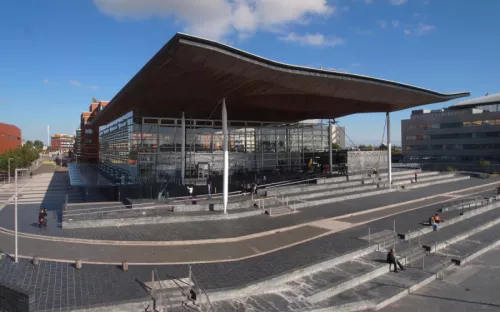Our new public policy officer in Wales, Sam Pritchard, introduces the state of different political parties in Wales, and gives us an overview of the leadership and policy challenges that all the Welsh parties will be facing over the next year.
There is no denying that politics in Wales is in a deep state of uncertainty and flux. It was announced this summer that all but one of the main political parties in the Welsh Assembly are having a leadership election. The only exception is the Liberal Democrats, though they currently only have one seat within the Assembly and their party leader is not an elected representative. These leadership elections will inevitably have a significant impact on the policies, priorities and positions that the parties will be advocating over the next few years.
The Conservative Party
The Conservative contest was triggered when the long-standing leader of the Conservative Party Group suddenly resigned his post following much speculation about his future. Since his resignation the Conservatives have already carried out their leadership contest in a two-horse race in which Paul Davies emerged as the victor. Davies’ election largely marks a continuation of the same political ideas and values that were offered by his predecessor, aside from his ‘remain stance’ on Brexit.
Plaid Cymru
As a political party, Plaid Cymru has embedded in its constitution that the leader of the party is subject to election every two years. These elections are normally uncontested. However, this time incumbent leader Leanne Wood saw two challengers step forward and contest the leadership. The campaign was much more public than those of other Welsh parties, and the results were declared late September: Leanne Wood lost to fellow Assembly Member Adam Price. This was a shock to many people, both in and outside the party.
It is important to recognise how much of a change this leadership election will make. Wood, who served as leader from 2012, came in third place, only managing to achieve 22 per cent of the vote. This suggests that a serious disconnect and political shift has emerged within the party. One of the main issues Adam Price campaigned on was Welsh independence, which evidently resonated with the membership.
So, with Adam Price as leader there is no doubt that independence will play a much larger part in Welsh politics than it has in recent years. And the main issues here are associated with identity, belonging and citizenship. This should provide many opportunities for evangelical Christians to talk about our Christian identity, found and complete in Christ.
United Kingdom Independence Party (UKIP)
UKIP’s leadership contest was also surprising and has already resulted in some political realignment. Three candidates put themselves forward: Neil Hamilton (the former leader), Caroline Jones (the acting leader) and Gareth Bennett (the challenger). After ballots went out to members, Gareth Bennett had a surprise victory, beating both former leaders of the group.
Not long after the appointment of Bennett, leadership candidate Caroline Jones announced that she was leaving UKIP and would be serving as an independent assembly member (AM) . This result was another example of party members across parties being dissatisfied with the status quo and opting for something new and different.
The Labour Party
Unlike the other political parties Labour is yet to appoint its next leader – the result of the party’s leadership election will be announced in December. There are three candidates currently standing to be the next Labour leader: First Minister Mark Drakeford (Cabinet Secretary for Finance), Vaughan Gethin (Health Secretary) and Baroness Eluned Morgan. The current front runner is Mark Drakeford, who has received the highest AM, MP, council leader and trade union support.
Conclusion
This whirlwind change of leaders will obviously have an important impact on the direction that political parties will take in Wales. Across the political spectrum, dissatisfaction with the consensus is beginning to grip many of the parties as they – in some respects radically – change their direction and leader. And there is always the danger that leadership processes cause division and sour feelings amongst elected members and the general public if a preferred candidate fails to win the election.
So, for Christians, the primary things to be praying about are:
- Unity and peace for our elected members so that the atmosphere within the Assembly does not become one of bitter resentment.
- The Labour Party and those members who will be voting in the upcoming weeks will be given wisdom and discernment as they cast their ballots.



